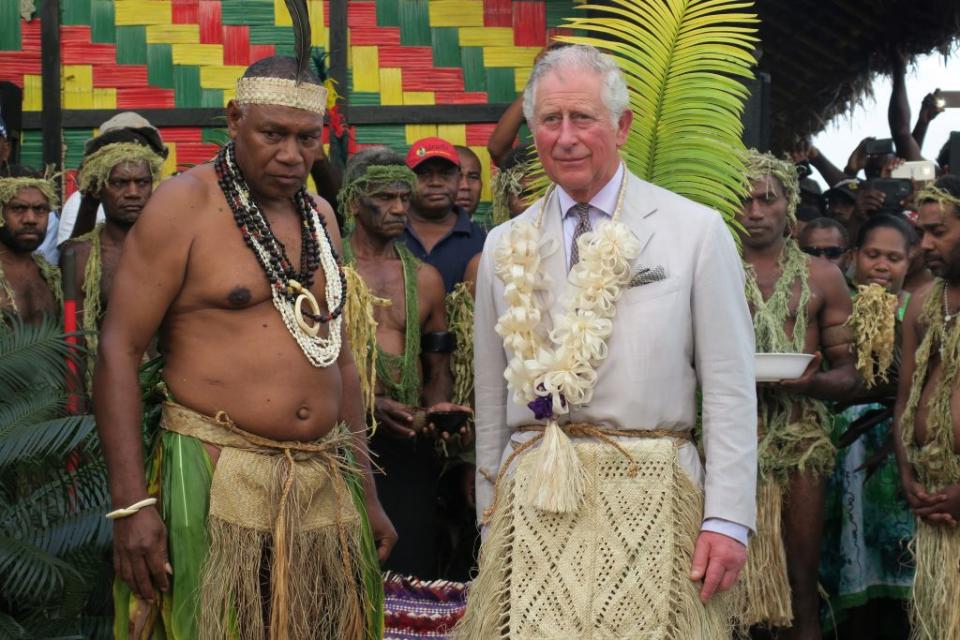For Prince Charles, Tradition Is the Way He Can Play a Role in British Politics

Prince Charles is a regular Tevye when it comes to tradition.
For those unfamiliar with the protagonist of the much-beloved Fiddler on the Roof, Tevye opens the musical by spelling out the customs of the Jewish people in Anatevka, a village in Imperial Russia at the turn of the 20th century.
"Because of our traditions, everyone knows who he is and what God expects him to do," Tevye says.
Honestly, it's not so different for the British royals.
The new documentary Prince Charles at 70 illustrates how the Prince of Wales is poised to become a modern monarch, one who has positioned himself as simultaneously informal in public settings and an unceasing workaholic, with passions ranging from fighting climate change to supporting vulnerable young people in the United Kingdom. But it also underlines Charles's keen sense of tradition, and the role it plays in British society-even when the particulars are perceived as silly or outdated.
“All these strange activities that go on, people dressing up and things, are actually rather important because it defines the particular boundaries and the way in which the constitution works because nothing’s written down," Charles says in the film, referencing how unlike in the U.S., the British constitution is unwritten and formed by an amalgamation of documents, Acts of Parliament, and, well, traditions.
"Somehow you've devised this extraordinary system which allows for a remarkable degree for flexibility, unlike some of the more rigid constitutions, so it has to be defined by tradition. A lot of people have a jolly time poking fun. If it becomes to serious, it's rather depressing."
The documentary sets up a parallel between the annual meeting of the Order of the Garter, where a selective group of Knights and Ladies, including a number of members of the royal family, convene at Windsor Castle wearing elaborate capes and plumed hats, and a ritual in which Prince Charles is named high chief by the people of the Pacific Islands of Vanuatu.

"Obviously, the costumes that the people of Vanuatu were wearing were rather different than what our royal family would wear. But it’s important to recognize, that ceremony is important to them, as the dressing up in funny costumes is to the British," filmmaker John Bridcut told T&C. "And although [Prince Charles] has created this role as Prince of Wales in a modern way in terms of taking up causes and championing them, I think he is also a great believer in stability and tradition."
That stability has benefits for those beyond the palace walls as well, says Bridcut. "People see tradition as part of the monarchy... and people will want that to continue as long as it’s not destructive in any way," he added. "These traditions are what give people a sense of belonging, and a continuity. So much is changing so fast in life, and yet I think people hang onto these things because it gives them a feeling that yesterday connects to today, which connects to tomorrow."
Bridcut also noted that in times of political volatility, these cultural touch points become increasingly significant.
"It’s important to give people a sort of the resolve to go on in life, and not to feel that they’re swirling around in a sort of chaos, which we are politically at the moment. The things that enable a nation to hang together are very important particularly when political life is very volatile."
But for Prince Charles, simply having a tradition isn't worthwhile, unless it's practiced with regularity.
"Tradition is pointless," he said, "if it isn't a living tradition."
('You Might Also Like',)


